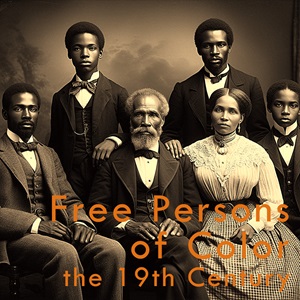
Central Pennsylvania's journey
from enslavement to freedom
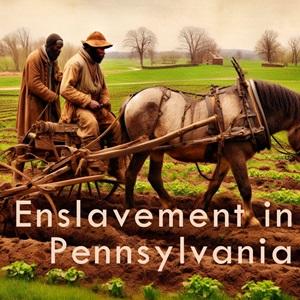
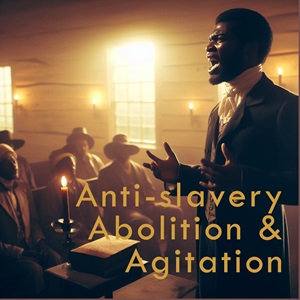
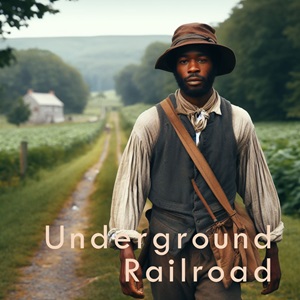
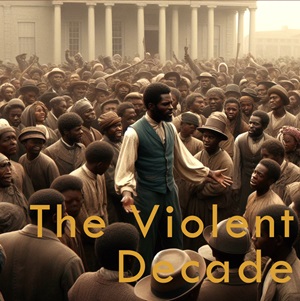
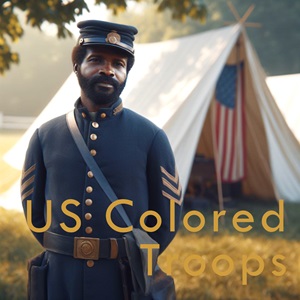
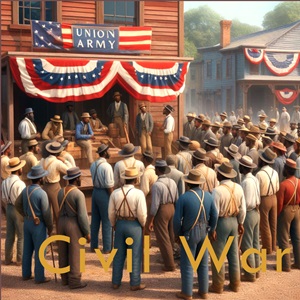
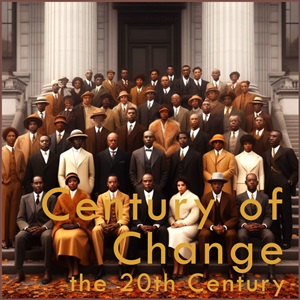
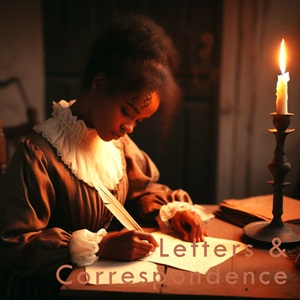
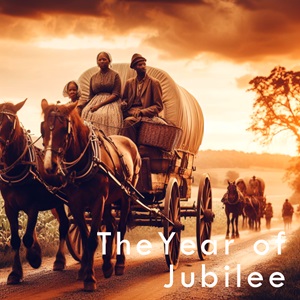
Local Interest
Read Joyce M. Davis' PennLive article about Hodges Heights, a historic African American development in Lower Paxton Township.
Site News
Baseball season is here. Harrisburg has a wonderful legacy of Negro Leagues baseball teams. Read "Blackball," the detailed article by Ted Knorr and Calobe Jackson, Jr. here: Blackball in Harrisburg.
Just uploaded--"1700 and 1726 Acts for the Regulation of Negroes." Full text of the harsh "Black Codes" passed in colonial Pennsylvania to regulate free Blacks and enslaved persons. Check it all out here: 1700 and 1726 Acts for the Regulation of Negroes.
New Section--"Former Slaves." News items about formerly enslaved African American residents. Check it out here:

Newly restored: Photos and video from Harrisburg's 2010 "Grand Review of Colored Troops." Check it out here:
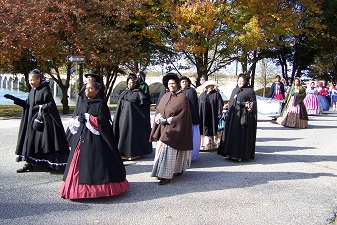
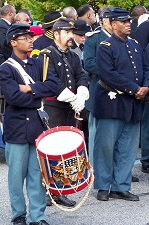
On This Date
April events important to local African American history (see the whole year)April 1, 1837: Edward Prigg is indicted in York for the kidnapping of Margaret Morgan and her children in violation of the 1826 Pennsylvania Personal Liberty Law. This sets in motion a trial and appeal that ends up as the landmark U.S. Supreme Court decision Prigg vs Pennsylvania. (Read more here)
April 1, 1878: Dinah, former slave of the Cowden family, dies at about ninety years of age. She is buried in Paxton Presbyterian Church Cemetery. (Read more here)
April 2, 1845: A delegation of American Antislavery Society speakers, including Abby Kelley (later Abby Kelly Foster) and Jane Elizabeth Hitchcock, speak at the Courthouse in Harrisburg. A Philadelphia correspondent reports that they lectured to large audiences, "many of whom were ladies." Unfortunately, the lectures were marred by pro-slavery activists who "raised false alarms of fire," heckled the speakers, and showered the group with eggs. The women were also threatened with tar and feathers, and duckings. The speakers also spoke at local black churches, where they were unmolested by rowdies. (Read more here)
April 4. 1792: Thaddeus Stevens, named for the Polish patriot Thaddeus Kosciuszko, is born in Danville, Vermont to Joshua and Sarah Morrill Stevens.
April 4, 1968: Dr. Martin Luther King, Jr. is assassinated in Memphis, Tennessee, at the Lorraine Hotel while in town to lead a demonstration of striking sanitation workers against low wages and poor working conditions.
April 5, 1800: Eanus, the slave of Robert Clark, of Southampton Township, Cumberland County, is arrested for trying to protect his young son from being taken away by a new owner, Jesse Kilgore, of Newton Township. Eanus leveled a gun at Kilgore when the man tied up Eanus’ son, but Eanus was convinced to put the weapon down and surrender.
(Read more here)
April 5, 1839: Robert Smalls, the only African American naval captain to serve during the Civil War, is born in Beaufort, S.C.
April 5, 1856: Booker Taliaferro Washington, first principal of Tuskegee Institute, is born in Franklin County, Virginia.
April 7, 1712: The New York slave insurrection involved twenty-three enslaved persons who burned a slaveholder’s house, fought with authorities, and killed nine whites. Twenty-one of the rebels were executed, but the event shocked slaveholders across the colonies. Pennsylvania promptly imposed higher tariffs on the purchase of slaves in a temporarily successful measure to curb slave importation.
April 9, 1865: The forces of Robert E. Lee, commanding the Army of Northern Virginia, surrender to General Ullysses S. Grant at the village of Appomatox Court House, Virginia. The surrender, which was finalized with a ceremony on April 12, effectively ended the war in Virginia.
April 9, 1866: Congress overrides a veto by President Johnson and passes the Civil Rights Act, guaranteeing citizenship and equal rights for African Americans.
April 12, 1787: Richard Allen and Absalom Jones form the Free African Society in Philadelphia.
April 12, 1861: The American Civil War begins with the shelling of Fort Sumter, South Carolina, by Confederate batteries. The bombardment began at four-thirty a.m. and continued for thirty-four hours. The Union garrison surrendered on Saturday, April 13, 1861.
April 12, 1865: The Army of Northern Virginia officially disbands and over 28,000 Confederate soldiers stacked their arms at Appomattox Court House, Virginia, and returned home, marking the end of the war in Virginia.
April 14, 1800: Caesar, the slave of John McAllister of Tyrone Township, Cumberland County (modern day Perry County), is beaten to death by William McAllister, John’s brother, for the supposed crime of stealing some money. Both men are later tried and found guilty of murder by a county court.
April 14, 1851: The Franklin family is arrested in Harrisburg, including a small child born in Pennsylvania. Slave Commissioner Richard McAllister tries to suppress protests by holding the hearing in the pre-dawn hours, but word gets out. The family is sent south without the youngest child, who is placed with a local black family.
(Read more here)
April 14, 1865: President Abraham Lincoln is shot at Ford's Theater by John Wilkes Booth.
April 15, 1865: At 7:22 a.m., Abraham Lincoln dies from the wound received at Ford's Theater from assassin John Wilkes Booth.
April 15, 1947: Jackie Robinson becomes the first African American to play professional baseball in the major leagues when he appears at Ebbets Field with the Brooklyn Dodgers.
April 16, 1862: President Abraham Lincoln signs a bill ending slavery in the District of Columbia.
April 16, 1863: The Harrisburg Daily Telegraph reports on a fugitive slave who was being lawfully taken through the city back to slavery in Maryland.
April 17, 1861: Virginia becomes the eighth state to secede from the Union.
April 21, 1825: Harrisburg's first reported incident in which local Blacks come to the aid of a captured fugitive slave with the use of public demonstration and force in an unsuccessful rescue attempt.
(Read more here)
April 21, 1865: Abraham Lincoln's funeral train brings his body to Harrisburg, arriving about 8:30 p.m. At Market and Fifth streets, his body was transferred to a hearse hitched to four white horses. Grooms led the horses west on Market Street to the Square, turned north to travel along Second Street to State, where the funeral procession turned right to proceed to the Capitol. From 9:30 p.m. until midnight, Harrisburg citizens filied through the House Chamber of the Capitol to view his body in the open casket.
(Read more here) Also see April 22, 1865, below.
April 22, 1865: At 7 a.m., mourners began viewing Abraham Lincoln's body in the House Chamber of the Capitol at Harrisburg. At 9 a.m., the casket was closed and prepared for the funeral procession back to the waiting funeral train at the Market Street station. More than forty thousand people lined the route along State, Second and Market streets. Ordinary citizen mourners were allowed to join the funeral procession at the end, with African American citizens segregated to the very rear. The train pulled out of Harrisburg at 11 a.m.
April 25, 1821: Harrisburg borough passes an ordinance requiring all “free persons of color” to register with the town burgess and report their names, occupations, addresses and the names of all family members and other non-whites in their homes. They were required to notify borough authorities if they moved to another residence in town, and if anyone moved in with them. This ordinance was an attempt to control non-whites who were not already under the rigid controls of slavery and indentured servitude.
(Read more here), (See scans of the 1821 Registry here)
April 28, 1847: George B. Vashon, son of John Bethune Vashon, a political activist and Underground Railroad conductor of Carlisle and Pittsburgh, becomes the first African American to pass the New York State Bar. See also April 29, 1824.
April 29. 1824: Birthday of George Boyer Vashon, abolitionist, lawyer and educator. Born in Carlisle to abolitionist and rights activist John Bethune Vashon, George was the first African American graduate of Oberlin College. He studied law and was later president of Avery College in Pittsburgh. He would go on to help found Howard University.
April 29, 1852: A. D. Ridgely, a police officer from Baltimore, Maryland, shoots to death William Smith, an alleged fugitive slave working at a lumberyard in Columbia, PA. Ridgely was accompanied Solomon Snyder of Harrisburg, a deputy to Federal Slave Commissioner Richard McAllister in Harrisburg. The incident causes outrage in the north.
(Read more here)
The url address of this page is: https://www.afrolumens.com/index.htm
